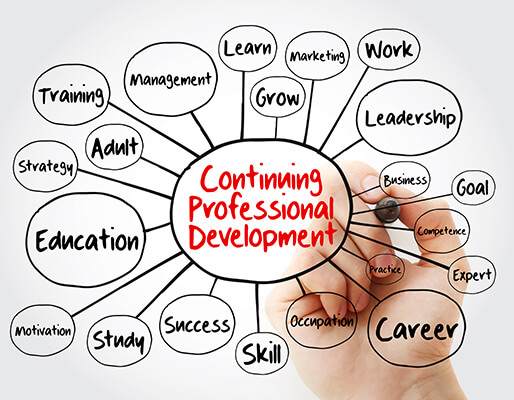
Over the last 15 years, I've worked with a lot of different marketing agencies. I've had the opportunity to work with agencies as a customer, partner, advisor, employee, and leader. I've been immersed in the life of an agency. Through this, I have also had the opportunity to help businesses of all sizes grow to be better.
When I started my first agency, I didn't understand what an agency really was. I had worked with an agency as a client prior but in October of 2007, I thought, "It can't be that hard."
It was "that hard."
The old adage of "the cobbler's children have no shoes" is very applicable to leaders of a marketing agency. They never do for themselves what they say they can do for their clients.
It's a fascinating problem to face. You tell your clients that you can do amazing things but can't prove it yourself:
- You can't generate meaningful search traffic on your own site.
- You can't create a hero message that speaks to the heart of your clients.
- You can't maintain a blog.
- Your social presence is severely lacking.
- You don't have a sales process that's truly repeatable.
- You can't set meaningful goals for your own company.
- The list goes on.
Now, it makes sense. It's hard to run your own business. It's hard to do for yourself the things that you do for others.
That list, however, does not indicate an unhealthy agency. Those are things that agencies need to fix, for sure. But an agency can be very successful for their clients and do very poorly with their own marketing.
The 5 Dysfunctions of Agency Leadership
The hallmarks of an unhealthy agency can be applied to most businesses. Take an honest look at your company. Do the hard thing and admit when you need to improve. If you experience more of these problems than you don't then your agency is unhealthy and you need to make some serious changes… now.
Here's my list:
- Multiple voices in leadership
- Employee roles are not well defined
- Your staff is overworked
- Low focus on personal & professional development
- Focused on hours worked not on the results
Multiple Voices in Leadership
To be a leader, you have to have a certain bit of drive. You have to be willing to push others to their greatest potential. There are many styles of leadership that work. In fact, there is no one way that works better for everyone.
A great leadership team will have different styles among their members. Sometimes an employee needs a strong driver. Sometimes they need someone who is more empathetic.
 The problem comes when the leaders in the company don't chase after the same vision.
The problem comes when the leaders in the company don't chase after the same vision.
You can see this evidenced by messaging that is mixed in delivery to the team. When the CEO brings a message to the team and the other members of the leadership team challenge that message openly it's one clear indicator that they aren't chasing the same vision.
As an agency leader, you might leave your leadership team meeting thinking you are in alignment. Just because the CEO says something, it doesn't mean the other members of the leadership team are on board. If you aren't in alignment, it will come out in every day conversation and undermine your ability to grow.
The graphic above is from a speech by Dharmesh Shah on Aligning Vectors. It's well worth the 46 minute runtime. If you can align your vectors, you can solve this problem in your agency.
Employee Roles Are Not Well Defined
 Too often I will see multiple employees working frantically trying to keep up with the workload. They will zip from project to project and have to demonstrate competency in multiple areas. Things get lost because everyone is trying to do everything.
Too often I will see multiple employees working frantically trying to keep up with the workload. They will zip from project to project and have to demonstrate competency in multiple areas. Things get lost because everyone is trying to do everything.
I worked in an agency where this was so evident that it caused turf wars over certain activities. They had more of a cultural definition of who did what rather than a clearly defined delineation of responsibilities.
When boundaries are culturally defined rather than structurally defined, you'll create an environment where everyone has to know everything about every client all the time. This is where office politics come into play. You have everyone vying for power. When you have 3-4 clients, you can get away with this. When you have 40, 50 or 100+ clients, that's impossible.
To resolve this, you need to have a role for everyone but the role can't be duplicated (unless you have multiple teams or are very specific about why you are duplicating). Here is a great resource on defining team roles.
Overworked staff
Did you know that when the boss sends emails late into the night and all day on Saturday & Sunday, that boss is actually teaching their employees that everyone is expected to work those crazy hours? It doesn't matter that you might have an unlimited vacation policy. It doesn't matter that your company values have the over-used & oft-misunderstood "work-life balance" mantra.
 If you set up an expectation, by example, that to get the job done right you have to put in long hours well beyond what is reasonable, then your employees will start their week already overworked.
If you set up an expectation, by example, that to get the job done right you have to put in long hours well beyond what is reasonable, then your employees will start their week already overworked.
You can see this evidenced in team meetings or regular interactions. When your employees are more concerned about getting what they need done and not about enjoying the moment to learn, grow, sharpen their skills, etc then your employees are overworked. If can't share happiness in your regular interactions then it's a clear sign that everyone is stressed and overworked.
If you don't understand your true capacity to fulfill contracts then you can't even begin to define if you are capable of having a staff that won't be required to work all hours of the day and night.
Sometimes your staff is overworked not because they have too much to do but because you are asking things of them that is outside their wheelhouse. This comes back to the properly defined roles. When you don't know how to do something, it becomes much more difficult than it should. It takes mind share to learn something new. If you are required to learn something outside your interest or when you have too much on your plate, it doesn't matter how many hours you work... you are overworked.
Do the math. Are there even enough hours in the working day to accomplish what you sell? It's not hard. It just takes a few minutes to run a calculator. Then take the time to understand how it applies to your team.
Low Focus on Personal & Professional Development
 Your company values might say that you believe in education. You might talk about learning new things in your "team" meetings. But, if you don't lead by example and truly have an 'always be learning' lifestyle, you can't possibly say that you embrace what's required to be excellent.
Your company values might say that you believe in education. You might talk about learning new things in your "team" meetings. But, if you don't lead by example and truly have an 'always be learning' lifestyle, you can't possibly say that you embrace what's required to be excellent.
It requires a lot of time to develop mastery of any skill. In an ever evolving world of digital marketing, it requires even more. It's not enough to read a few articles from some industry thought leaders and call it good. It takes time to learn, test, experiment, and fail.
I'd recommend setting some minimum standards for how to measure their understanding and growth. HubSpot Academy is a great place to start for marketers and developers.
Most importantly, give them the time needed to learn and grow. Expect some time after hours as well for personal & professional development. Demonstrate it's important to you by requiring time on the clock as well.
Focused on Hours - Not Results

I was in a leadership meeting once with a remote-first company that had the "unlimited time off" policy. One of the leaders in the company said, "I bet our employees don't even work on Friday afternoons. I wish we could do a better job of monitoring when they are working."
My response? "Why do you care about how many hours they work?"
If the job gets done and you know you are reasonable in your expectations (see overworked above), then you shouldn't care if your employees work 16 hours or 160 hours in a week.
Work does not magically start at 8am and end at 5pm. The 8-hour work day is defunct. Moreover, particularly in a creative job, you have to understand that creativity comes in different ways to different people.
Set your measures for success in meaningful ways. Hours worked are not meaningful. Judge your employees by meeting your meaningful and realistic success measures not by how many hours they work.
What does this mean for you?
I was reminded once that "Culture Eats Strategy For Lunch." If your culture is an overworked staff that is unhappy and not learning then no strategy will solve for that.
In any good company, success starts from the top down. Adam Grant (Author of "Think Again") pointed out:
It's not your job to fix a toxic workplace from the bottom. If leaders at the top aren't committed to change, the best way to stay sane is to shield yourself and support your team.
You can't afford to have a culture that requires your employees to shield themselves.
Start at the top. Establish a culture of always being better.
Be honest with yourself. Be honest with your team. Be better together.